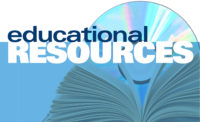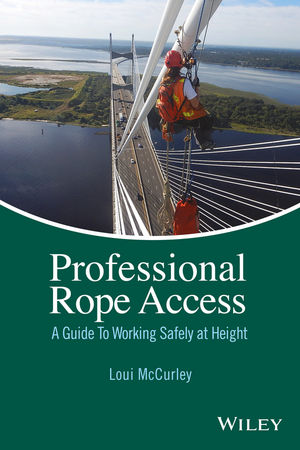The Health and Safety industry is evolving and with it is the skill set required to be successful. There will always be a need for technical underpinning gained through formal qualifications, but many successful leaders attribute their success to the ability to demonstrate a set of critical competencies that go beyond technical knowledge. Anna Keen, Director and Founder of Acre Frameworks (United Kingdom) explains…
When considering your personal development, either to be effective in your current role or to progress your career, it is essential you dedicate time and attention to developing these competencies.
But what are these competencies?
Acre Frameworks, the assessment and development arm of Acre Resources, one of the UK’s leading Health and Safety recruitment consultancies, have spent the past 12 months working with a group of senior Health and Safety leaders to define the behavioral competencies critical for success.
Fundamentals– Required between entry level and pre-management level.
Planning and Organizing– You think ahead, manage your time, priorities and risk. You develop structured and efficient approaches to deliver work on time and to a high standard.
Initiating Action– You take prompt action to accomplish individual and wider team objectives. You will go above and beyond what is required to achieve a goal. You proactively seek opportunities to act before being asked and look beyond Health and Safety to find ways of achieving company-wide objectives.
Team Player– You consciously listen to and consider the needs and challenges faced by others both within Health and Safety team and in other departments. You work collaboratively and build trust to achieve the best possible outcome for the organization.
Flexible to Change– You adapt easily to changing business needs, conditions and work responsibilities. You modify your approach and goals to achieve successful solutions and results in dynamic situations.
Application of technical knowledge– You acquire and use technical and professional knowledge, skills and judgment to achieve results and serve customers effectively.
Coaching– You work to improve the immediate Health and Safety behaviors of others, facilitate their professional development and provide timely feedback in a manner that installs confidence and enhances their engagement. You encourage all stakeholders to achieve both their individual goals and the goals of the wider organization in a safe and healthy manner.
Managing Challenge– You do not falter at first sign of objection. You are able to utilize effective interpersonal skills to gain acceptance of ideas in an appropriate manner for the audience. You are able to articulate the deal outcome and are able to demonstrate why a change needs to occur.
Stakeholder Focus– You consult with, listen to and understand the needs of those both internally and externally that are impacted by the Health and Safety function. You use this knowledge to shape the actions of the Health and Safety team and manage others’ expectations.
Continuous Improvement– You critically evaluate processes and working practices and seek incremental improvements that drive efficiencies for all areas of the business, not just the achievement of Health and Safety targets. You consider all stakeholders and consult widely before making informed changes.
Leadership – Required from management to executive level.
Strategic Development and Ownership– You take a long-term view developing a Health and Safety strategy that is aligned with overall company objectives. You take accountability for outcomes and adapt your strategy to an ever-changing environment.
Driving Change Through Others– You promote the benefits of the Health and Safety strategy to stakeholders, encouraging them to take personal ownership for delivery. You provide support and coaching to empower individuals to drive outcomes in line with strategy.
Executive Disposition– You articulate confidently and credibly in the presence of the Executive board. You convey an image that is consistent with organization’s values, demonstrating the energy and passion to achieve organizational goals.
Commercial Acumen– You take an interest in wider business practice and are not confined to the remit of Health and Safety. You understand commercial, financial and business drivers to provide solutions to Health and Safety related challenges that drive efficiencies within all areas of the business and have a positive impact on bottom line.
Develops High Performance Teams–You set high standards for yourself and others. You provide guidance, support and motivation to team members to achieve the goals of the organization. You promote continuous development in line with business and market demands.
Innovation and Risk Taking– You see beyond the perceived limitations and strive to achieve value or benefit by assessing possible outcomes and taking calculated risks based on the information available. You question the boundaries of conventional Health and Safety practices and are brave enough to support your own beliefs to gain the desired outcome, even if this could be seen as controversial.
Global Leadership– You seek to understand the complexities of operating on a global scale. You consider cultural and regulatory differences and offer flexibility at a local level whilst achieving organization wide best practice.
Industry Leader–You promote yourself and your employer as a leader in the field of Health and Safety. You actively seek opportunities to promote new theories and expand on knowledge. You are considered a thought leader by peers across the sector.
This may seem like a lot to do but remember a few of things:
You don’t have to be good at everything– Contrary to popular belief exceptional leaders aren’t exceptional at everything. They understand their strengths, leverage them and then they develop their weaknesses to the point that they don’t disable them in role, i.e. no one else knows they are weaknesses.
These competencies are cumulative– As you develop your career you will develop different competencies and build upon the ones you have already developed. It’s a long term journey so don’t expect change overnight.
Not all jobs require you to have all these competencies– It’s important to understand the competencies that are required to be successful in the role you do. Use the list above as a basis for a conversation with your manager. Which are critical and how do you perform against these?
When you plan your career, focus on your strengths– You enjoy doing what you are better at so try to make sure the path you are going down is aligned to that.
Work with people that complement you– Another secret to the success of exceptional leaders is when recruiting or forming a team, rather than finding people similar to them, they identify those who have different strengths which complement their own.
How do you develop these competencies?
Understand yourself– Through self-assessment, 360° assessments with your manager and peers or by using a data driven tool like Acre Frameworksto understand what your strengths are and where you behaviors may be negatively or positively impacting your performance in a Health and Safety role.
Understand your role– Define with your manager or stakeholders what are the competencies critical for success are in your current role. Your company may have its own framework but if not use the Acre Frameworks Competency Framework above as a starting point for this conversation.
Define where you want to be in 5 years’ time– Sounds like a really bad interview question, but take time to work out what you want to be doing in 5 years’ time. What do you want to be known for? What would be your legacy? Then take time to plot out how you may get there. What competencies would that role require? What experience would you need? What might prevent you getting there?
Develop a plan– Have clear goals and objectives of what you need to do to achieve your 5 year plan on a monthly/quarterly/annual basis. Do you need to read up on coaching methods? Do you need to understand the commercials more? Do you need to get some exposure to strategy?
Find a mentor– Whether it’s your manager, a development coach, a formal program at your company or a friend you respect. Share your finding and plan with someone. Get advice; discuss things you may not have considered. Agree to touch base regularly to track progress and discuss challenges.
A few other learning sources…
Internal opportunities– Speak with your manager about opportunities open to you to learn within your organization; for example leadership courses, shadowing the work of other teams or formalized mentoring programs. If you don’t have any of these maybe you could drive that change?
Books– There are a number of books out there that focus on the development of these competencies. Join a book club like The Women Health and Safety Inspiration Cluband find out what is inspiring your peers.
TED Talks– If you don’t enjoy reading or have time to read? Gain inspiration and advice from the 2000+ TED Talks
Networking– Attend events like the Safety and Health Expoto understand the current issues and innovations in the market. Build relationships with people outside your business or industry and share best practice and ideas.
Social media– Keep up to date with what innovative things are happening in the profession by following or connecting with Senior Leaders in the profession on Twitterand LinkedIn.
Meet with a professional coach– Work with a company like Acre Frameworksto understand through psychometric testing how your personality preferences are impacting your performance in role and work with a trained development coach to build a structured development plan and to build your personal brand.
Having spent more than a decade recruiting Health and Safety professionals across the globe, Anna is working in partnership with Acre to add value to their clients and the wider Health and Safety profession through the assessment and development of behavioral competencies in the profession.
In addition to having extensive recruitment experience, Anna is also an accredited psychometric assessor and trained competency interviewer.
Source: Safety &Health Practitioner (UK) www.shponline.co.uk





